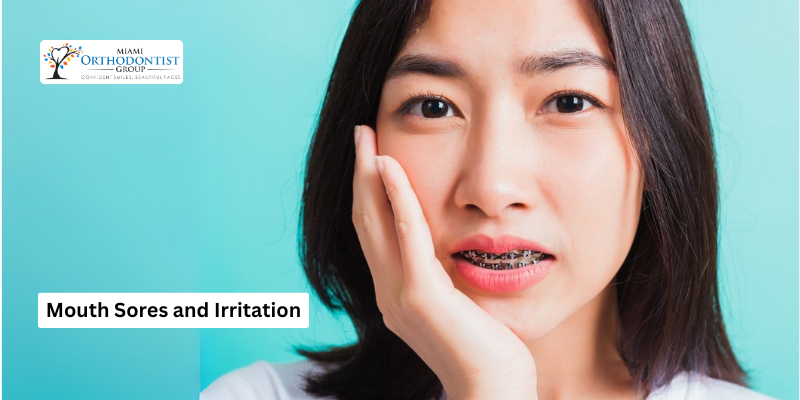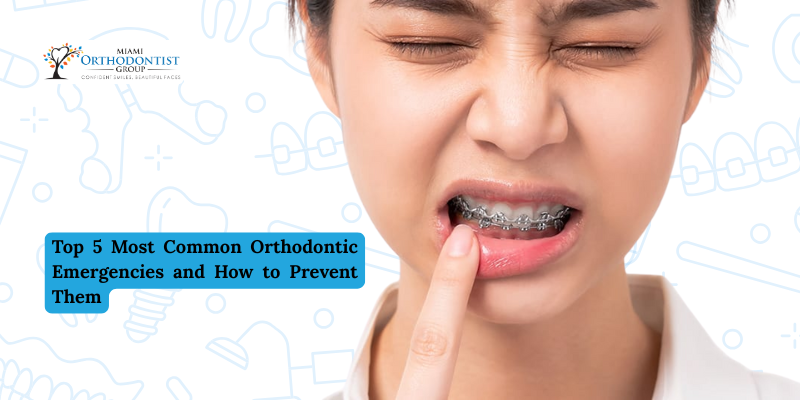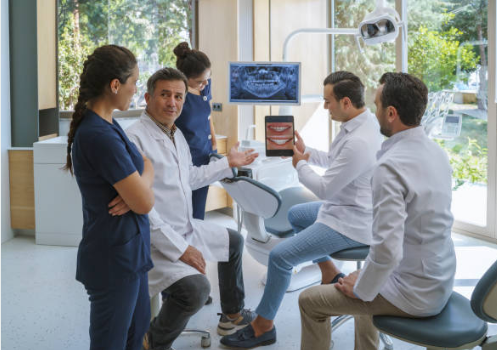Smiles are treasured, and braces assist us in making them brighter. Yet, there are moments when tiny issues, such as braces or orthodontic issues, seem frightening. Nothing to fret about; most problems are simple to learn and avoid. It only takes additional attention and some expertise to protect your braces and keep your smile problem-free. Together, we will discuss the 5 most frequently occurring orthodontic emergencies.
1. Loose Brackets
Brackets are the small square attachments that are coupled to your teeth as a way to attach the braces’ wire. They are sometimes loosened when you take hard and sticky food like popcorn and ice. When worn off the bracket, they may even hurt your mouth or interfere with the proper functioning of your braces.
Prevention: Avoid crunchy or sticky snacks. Avoid hard foods, and if you have activities that require a mouthguard, use one to protect your braces. If you need to loosen it, ask your orthodontist—never attempt to crack the problem yourself.
2. Poking Wires
The wire used through your brackets slips off and pricks your cheeks or gums. This may feel like sharp pain. Even a small piece that protrudes can also scratch inside your mouth.
Prevention Tip: Check your braces after you eat or brush. Cover them with orthodontic wax in case you feel a wire poking until your orthodontist fixes it. Never connect wires yourself—that may make them even worse.
3. Broken or Torn Retainers or Appliances
Following the braces, a retainer is required to retain teeth. Retainers or other appliances may snap when dropped, trodden on, or chewed. A damaged retainer not only ceases to be effective but can also cause pain to your mouth due to sharp edges.
Prevention Tip: Be careful with retainers. Keep them in their case when not in use, and never put them in tissues since they can be thrown away accidentally. Brush them with a toothbrush and rinse frequently to be strong and clean.
4. Mouth Sores and Irritation
 The brackets can irritate your lips, cheeks, and tongue, so that they may get minor cuts. They might come as tender areas or blisters, especially when you still get into the braces.
The brackets can irritate your lips, cheeks, and tongue, so that they may get minor cuts. They might come as tender areas or blisters, especially when you still get into the braces.
Treatment: Use orthodontic wax to cover any rough areas on braces. You can also rinse your mouth with warm salt water to treat this. Your mouth will adapt over time, and the irritation will improve. Also, keep in mind that most mouth sores are temporary.
5. Missing or Broken Elastic Bands
Elastics (rubber bands) assist teeth in moving by helping them align with braces. However, they can break, fall off, or get lost, slowing progress because their absence causes teeth to shift improperly.
Prevention: Ensure that you have extra bands with you. Use your orthodontist’s instructions to the letter, and ensure that you change them immediately if one of them breaks. Avoid doubling up, unless your orthodontist instructs you to—otherwise it will exert too much pressure.
Additional Tips to Remain Free of Emergencies
- Brush Gently Yet Carefully
The rough brushing damages the braces, whereas the not-so-well brushing causes cavities to develop.
- Wear Your Mouthguard
Do you play sports? If so, wear a mouthguard to protect your braces and teeth.
- Have orthodontic wax on hand: This will ease the pain in case of emergencies.
- Go to regular checkups.
It is essential not to miss check-ups, as your orthodontist may notice minor issues.
- Watch Your Diet
There are foods your braces are not good friends with. Sticky candy, chewing gum, caramel, popcorn, hard nuts, and crunchy snacks are not welcoming to wires and brackets, as they can easily break them. Instead, select gentle foods (mashed potatoes, yogurt, bananas, or pasta). If the crunchiness is really important to you, chop it up into bite-sized pieces and chew slowly with your back teeth.
- Guard Your Oral Cavity When You Are Playing Sports
Wear a mouthguard when you train in soccer or basketball or ride a bike. And a single bump might injure your braces and teeth. The best thing you can do is get a customized mouthguard made by your orthodontist, but even without that, a standard one will be good.
- Clean Braces Keep Them Clean
Food may get trapped in your braces, allowing bacteria to multiply. This may lead to holes or gingivitis. Use a soft toothbrush to brush after every meal, and use special floss with braces. Rinse with water when you cannot brush immediately. Clean braces will give fewer problems in the future.
- Don’t Use Orthodontic Wax Wisely
Always have orthodontic wax at hand. When a wire or a hook feels sharp, cover it immediately with wax. This prevents sores on your cheeks and tongue tip until you visit the orthodontist.
- Don’t Miss Appointments
Your orthodontist monitors and ensures that everything is tracking well. Little mistakes can develop into large disasters when ignored. Never miss your visits, and call in case something feels wrong.
- Be Tolerant and Kind
Braces are performing an excellent service. Avoid playing with them, picking at the wires, or biting on complex objects. Be nice to them; they will reward you with a beautiful, healthy smile.
Conclusion
Orthodontic emergencies are nothing to fear since most are relatively minor and do not require much attention. These issues can all be avoided by not getting in trouble with eating right, not damaging their braces, and, of course, by listening to their orthodontist. The point is to remember that the endeavor towards gaining a beautiful smile will be worth the cost. Take caution, take your time, and you will soon be lighting up with the smile you have been dying to have.




